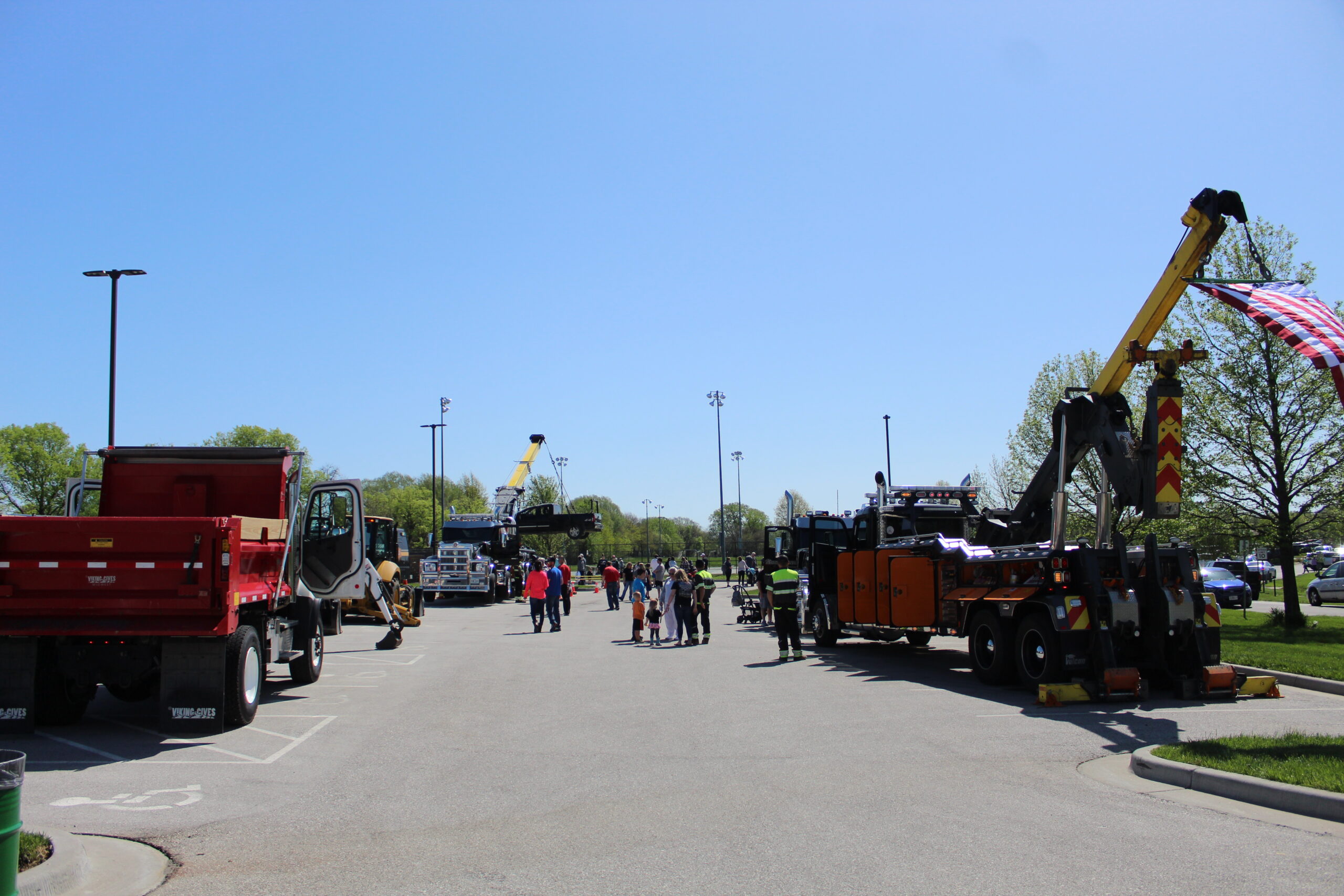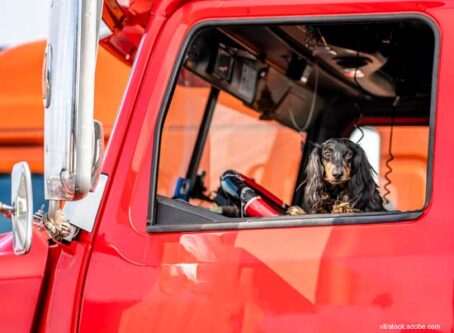Local events are frontlines of trucking industry ‘info war’
The pandemic-induced spotlight on the trucking industry is getting dimmer, but truckers have an opportunity to recharge those lumens with local Touch-a-Truck events.
Information campaigns are necessary. Even the most “commonsense” bits of information will face counterattacks from an industry with an opposing view. For example, one would think mandating speed limiters is obviously a terrible idea, given the wealth of data suggesting as much. Yet, here we are.
Combatting misinformation is a full-time job, often comprising of a team of public relations personnel and lobbyists working tirelessly to nudge a single issue. They have the resources to go after the big fish – i.e., governments and mainstream media outlets. However, they still need help at the ground level from everyday folks to reach their local communities.
There are many ways to achieve this, but there is one way in particular that may be among the most effective and certainly the most fun.
Touch-a-truck events
With warm-weather months upon us, local communities across the nation likely have their calendars booked with a variety of outdoor events, including a touch-a-truck event.
Recently, I attended my local touch-a-truck event in Raymore, Mo., the southernmost suburb of the Kansas City metro area. This is not unique to Raymore. Towns throughout the country have similar events.
Touch-a-truck events often include a variety of trucks, ranging from farm equipment to mobile command units for law enforcement agencies. At Raymore’s version, there were fire trucks, tow trucks, ambulances, police SUVs, excavators, etc.

However, there was not a single tractor-trailer at this touch-a-truck event.
The closest thing to a semi at this event were a few Kenworth trucks owned by a towing company. These trucks were Class 8, sure, but they were not being operated as freight vehicles.
Perhaps more importantly, no one displaying a vehicle was at the touch-a-truck event to talk about the trucking industry. Instead, there was an owner of a different kind of truck operation who was not shy about discussing a narrative that runs counter to the reality of small business, owner-operators.
Therein lies the problem.
Community outreach
Local events like touch-a-truck can be a gold mine for the industry to inform the general public about trucking issues that can affect them and their community. However, truckers needs to volunteer their time for it to work.
With nearly 20,000 cities in the United States, there are hundreds – maybe even thousands – of local events of which truckers can take advantage. There is a chance someone with an opposing view will participate, giving them the lead in the “info war” if the trucking industry is not also represented.
At the event I attended, one towing company owner explained why towing a tractor-trailer costs thousands of dollars. I know the merits of his arguments. It’s my job. However, most people do not know much, if anything, about this world. Consequently, they are likely to take information related to the trucking industry at face value in the absence of an opposing view, especially when the person giving out the information is your run-of-the-mill working class hero.
Do’s and Don’ts
Truckers who decide to participate in touch-a-truck events or something similar need to be mindful of what they say. After all, you have volunteered yourself as an unofficial spokesperson for the trucking industry.
Norita Taylor, the official spokesperson for the Owner-Operator Independent Drivers Association, does this for a living. She has some pointers for anyone looking to get involved with local, public events.
DO talk about the “day in the life” of a trucker. Let the general public know how a typical day is for you, including the good, the bad and the ugly. Stuff like finding meals, exercising, etc.
DON’T discuss policy issues – e.g., speed limiters, employee misclassification, drug testing, etc. You might bring up these topics when discussing your specific day-to-day operations, but don’t opine on the general policy (or lack thereof). These are complicated issues that require a nuanced, surgical approach when informing the public and policymakers.
DO look and act professional. You don’t have to wear a suit and speak like a scholar, but also be aware that you are representing an entire industry. This includes being kid-friendly. After all, most of these events are for kids. You will likely be talking to a parent while their child is blaring your truck’s horn.
DON’T bring politics into the conversation. Even if a certain politician or political group is to blame for a certain issue, whoever you are talking to may not see it that way.
DO keep your explanations simple. These issues are already complicated enough as it is. Being clear and concise will help people wrap their mind around the complexities. Think of the following acronym that jazz musicians use as a general guideline when performing improvised solos: KISS or “keep it simple, stupid.” Although sounding sophisticated may seem impressive, it usually goes above the heads of the uninitiated.
DON’T expect people to be aware of the challenges. What is obvious to you may not be obvious to everybody else. Don’t get offended if someone does not understand the issue being discussed. Rather, embrace the moment as an opportunity to educate a fellow citizen.
Did you know there is a blow dry and style deregulation issue within the beauty industry? Think about how someone would need to approach you about that topic for you to feel somewhat invested. Now take those thoughts and apply it to your approach.
Check your local government’s event calendar and find one you can attend. Don’t see one? Suggest a touch-a-truck event to your local parks and recreation department or organize one yourself. Don’t let someone else shape the perception of the trucking industry within your community. LL









